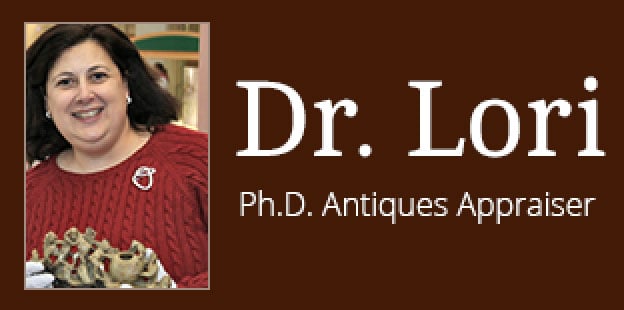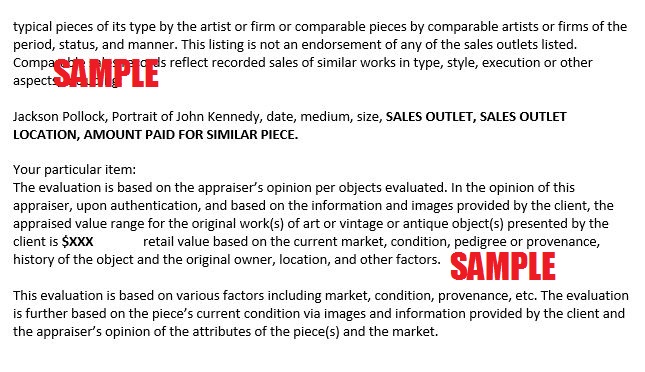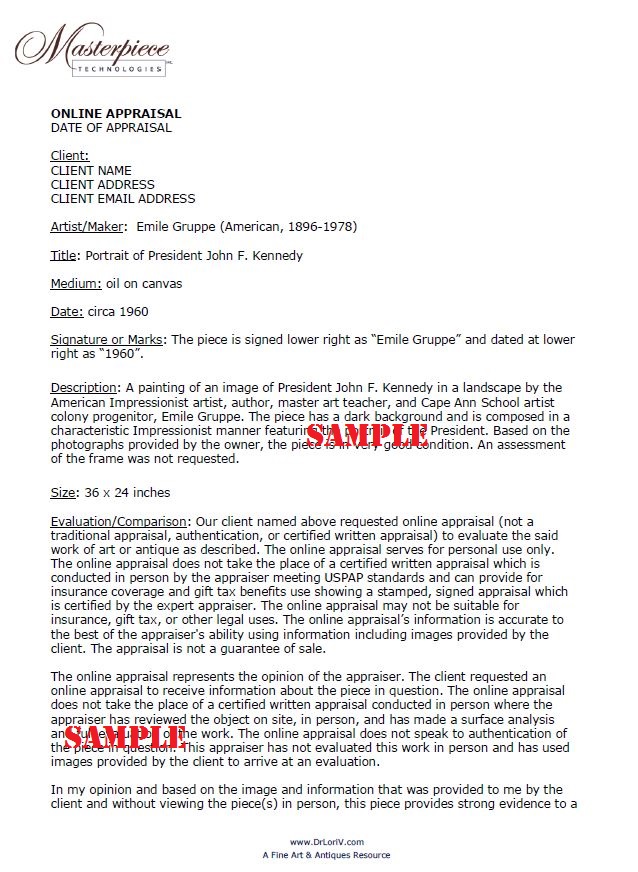
I get a lot of questions about what is the best way to sell antiques. There are many factors which I have discussed in this blog and in my popular videos. My advice is based real stories told to me from sellers and buyers during my in-home appraisal visits, Priority Ask Dr. Lori service, and nationwide appraisal events where I help both sellers and buyers get the best deals.
Many of you appreciate me revealing the truth about art, antiques, collectibles and their respective markets, but some of these stories hit a nerve with some sellers and buyers. Just because I mention a particular method of buying or selling antiques or a specific venue like an auction, antique or consignment shop or estate sale, that doesn’t mean that all folks involved in those aforementioned industries are unscrupulous or underhanded. They are not all out to get you.
From my point of view, I’m here to help both antique sellers and buyers no matter the situation. By sharing these real stories, you can avoid the pitfalls, protect yourself against losing money as a buyer or a seller and make the most money in any transaction. The best way to protect yourself whether you are approaching this from a buyer’s or a seller’s standpoint is to know your item and know its market, too.
1. Selling at a Consignment Shop

Some items are best sold at consignment shops. Don’t assume that every consignment shop has your best interest at heart as indicated by an email that I received about a consignment shop experience. The email writer told the story of how he is buying mid-century modern pieces at low prices and flipping them at very good high prices. See a piece of Heywood Wakefield furniture which is of mid-century modern design. This seller reported that he has been lucky to find many mid-century modern items in various locations—flea markets, yard sales, thrift stores, etc. And, he has been successful reselling these mid 20th Century modern objects for a very good return. But, one piece that he placed with a consignment shop for them to sell it on his behalf sold for $500. That sounds pretty good right? Well, after doing some research and getting some help, he later discovered that the object he placed with the consignment shop was not sold for $500 from the consignment shop but rather was re-sold for $15,000. This isn’t a reflection of the methods used by every consignment shop, but it does remind you to know the market of your items before you sell them or ask someone else to sell them. The original seller got a small amount from the consignment shop, comparatively, for his mid century modern piece but he didn’t get the best return because he didn’t know the market for his piece. The consignment shop obviously knew the market and sold the piece for a big return, but didn’t tell the seller the amount it really sold for and didn’t paid the seller the percentage of the sale that he rightly deserved.
2. Hosting your own Estate Sale

Most folks know that Estate Sales are good places to find good art and antiques at low prices. Most people who have estate sales hire estate sale companies to help organize and advertise the sale and provide other types of guidance and assistance when liquidating an estate. I have lectured to estate sales professionals at conferences and they are typically well versed in their local market and understand very good ways to market and sell objects from an estate. These estate sale folks are professionals but as owners of the estate you have to play a role in getting the most from your objects if they are selling at estate sales too.
If you decide to host your own estate sales without the help of an estate sale company, you may want to read this real life story about how seasoned professionals may help. One fan wrote that she was drowning in stuff and was thinking of organizing an estate sale on her own. She said that she had a sale and did pretty well monetarily but was traumatized by the way the shoppers treated her during the sale. She wrote that the shoppers at the sale ripped stuff off all the walls and got in her and her family’s face about tagged prices and more. She reported that there was so much family drama over the objects from her parents’ estate that she and her siblings just gave stuff away in order to have the whole process over and done. She thinks she lost a lot of valuable items and couldn’t take the anxiety of it all. This story shows, of course, that you can lose a lot of very valuable stuff from an estate when you try to take on a big job like an estate sale by yourself or without expert help. The objects collected over a lifetime can be overwhelming, spark emotions, and bring to the surface many opinions of family members — all of which can be upsetting. Consider getting expert advice and do your own research to be sure you know the market for the items you are selling. Don’t just look in one place for all information.
If you decide to host your own estate sale, consider the personalities, background, and attitudes of family members and friends. Never allow buyers to mistreat you. You always have the right to politely ask any potential buyer who is impolite or acting erratically to leave your property. This is another reason why professionalism and security is important at estate sales. Try to avoid these 3 Estate Sale Mistakes.
Once you decide to go it alone and host an estate sale, follow these steps: get an appraisal of the objects so you know the current market value for items, price and tag all the objects, decide how you will receive payment and give change, clean the objects, inquire about your insurance coverage for hosting an estate sale if there is an accident on the premises, and take security measures—everything from hidden cameras to living breathing guards watching over the objects during the sale. There are low cost options to get appraisals—I offer many options. My services are what the estate sale professionals use… they ask me. Remember hosting your own estate sales is not as easy as just putting your stuff on a bunch of tables and collecting the cash. There is a lot more to it than that. Read my 3 Estate Sale Liquidating Tips.
3. Selling Online
Selling online is a popular and very common way to sell art, antiques, collectibles of all kinds nowadays. Online auctions like eBay.com, 1stDibs.com, and others or selling apps like Let Go, Mercari, DeCluttr, etc. are just some of the ways to get your stuff sold. Online shops like Replacementsltd.com, Etsy.com, Rubylane.com and others are well-known options in the art, antiques, and collectibles realm and they all offer great results. Read 3 Tips to Sell Antiques Online.
Of course, you have to know the ropes. For instance, it’s a must to document items for sale before shipping them out to any buyer. This documentation will prove very helpful when a buyer decides after that fact that he/she is not satisfied with a purchase and then returns the item or horrifically, returns a different item saying–or trying to convince you that–it was the original item. Another thing to look out for is when buyers claim (emphasis on “claim”) that they have a problem with an item or that they did not receive a purchased item and then, they do a chargeback. Make sure you keep all shipping receipts, too. Unfortunately, this and many other terrible and unfair online sale happenings occur more often than you think. So, you have to protect yourself. When accepting payments consider setting up a credit card processor account with a card processor like PayPal since they offer seller protection options that may prove helpful if there is a dispute.
I help many resellers identify and value their inventories of objects so they can price their items correctly and within the market accordingly. Many individuals who might only have a piece or two to sell follow my tips in my how do I sell my antique guide to get top dollar.


